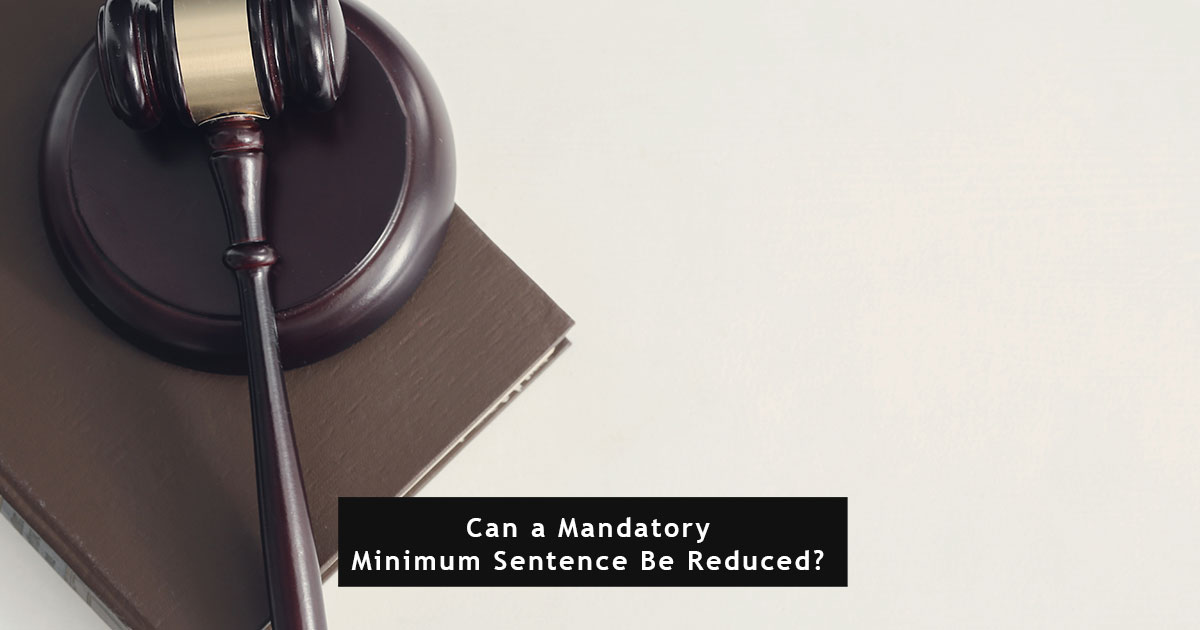Mandatory minimum sentences are a type of criminal justice policy that requires judges to impose a predetermined minimum sentence for certain crimes, particularly drug offenses. These sentences were largely introduced as part of a broader push for tougher crime laws and are designed to provide uniform punishment for specific offenses, regardless of the individual circumstances of the case.
The concept of mandatory minimums has its roots in the belief that certain crimes are so serious that they warrant a fixed minimum penalty. These laws gained prominence in the United States during the 1980s, especially with the Anti-Drug Abuse Act of 1986, which set strict sentencing guidelines for drug offenses. The goal was to deter crime, eliminate sentencing disparities, and ensure punishment proportionate to the offense.
The Impact of Mandatory Minimum Sentences
The implementation of mandatory minimum sentences has had far-reaching impacts on the criminal justice system:
- Reduced Judicial Discretion: Mandatory minimums significantly limit the ability of judges to consider the specifics of a case, including the defendant’s role in the crime and their background. This can lead to sentences that many argue are disproportionately harsh for the crime committed.
- Prison Overpopulation and Racial Disparities: These laws have contributed to a dramatic increase in the prison population. Many of those incarcerated under mandatory minimum laws are there for nonviolent drug offenses, leading to overcrowded prisons and significant racial disparities in incarceration rates. The impact is particularly pronounced in the case of drug-related offenses, where such sentencing has disproportionately affected minority communities.
- Debate Over Efficacy and Fairness: Critics argue that mandatory minimums have not effectively deterred crime but instead have led to unjustly harsh penalties for lesser offenses. They also point out that these sentences contribute to the high costs of maintaining an increasingly large prison population. In contrast, supporters assert that these laws ensure consistency in sentencing and help in the fight against serious crimes.
- Calls for Reform: Due to the various issues associated with mandatory minimums, there have been growing calls for reform. Advocates for change suggest that judges should be given more discretion, and that sentences should be more proportional to the actual offenses. Some states have already begun revising their mandatory minimum laws, reflecting a shift towards a more balanced approach in sentencing.
Arguments for and Against Mandatory Minimums
Arguments For Mandatory Minimums:
- Consistency in Sentencing: Proponents argue that mandatory minimums ensure uniformity in punishment, removing the possibility of unusually lenient or harsh sentences based on judicial discretion.
- Deterrence of Crime: Supporters believe these laws deter people from committing crimes, especially serious offenses like drug trafficking.
- Elimination of Sentencing Disparity: Mandatory minimums are seen as a tool to eliminate disparities in sentencing, particularly those influenced by racial or socio-economic factors.
- Societal Judgment on Serious Offenses: Advocates assert that mandatory minimums reflect a societal consensus on the minimum acceptable punishment for certain grave offenses.
Arguments Against Mandatory Minimums:
- Undermining Judicial Discretion: Critics argue that these laws prevent judges from considering the unique circumstances of each case, leading to disproportionately harsh sentences for certain offenders.
- Overpopulation of Prisons: Mandatory minimums contribute significantly to the overpopulation of prisons, particularly with non-violent offenders, impacting state budgets and prison management.
- Racial Disparities and Unfair Impact: There is a concern that these laws disproportionately impact minority communities, exacerbating racial disparities in the criminal justice system.
- Questionable Effectiveness in Deterring Crime: Many argue that mandatory minimums do not effectively deter crime and instead result in unjust penalties for lesser offenses.
- Cost Inefficiency: The financial burden of incarcerating individuals for long periods under mandatory minimums is seen as an inefficient use of resources.
Mechanisms for Reducing Mandatory Minimum Sentences
- Legal Reforms and Legislation: Congress or state legislatures can modify or repeal mandatory minimum laws, allowing for more flexible sentencing guidelines.
- Judicial Discretion and Sentencing Reform: Empowering judges to have more discretion in sentencing, considering individual circumstances rather than adhering strictly to mandatory minimums.
- Cooperation and Plea Bargains: In some cases, offenders can receive sentence reductions in exchange for cooperation with law enforcement or accepting plea deals.
- Executive Clemency and Pardons: In certain situations, executive authorities (such as the President or governors) can grant clemency or pardons, reducing or nullifying mandatory minimum sentences.
- Advocacy and Public Awareness: Efforts by advocacy groups and public campaigns can raise awareness about the impacts of mandatory minimums and push for legislative changes.
Reforming Mandatory Minimum Laws
Recent Reforms and Legislative Changes:
- Some states have reformed their mandatory minimum laws by reducing the severity of these sentences or giving judges more discretion.
- Examples include New York and Kentucky, which have modified their drug sentencing laws, leading to reductions in prison populations and more proportionate sentencing.
Proposed Reforms:
- Reducing mandatory minimum sentences and granting judges greater sentencing discretion.
- Reinvesting in community programs and rehabilitation instead of excessive incarceration.
- Addressing the racial disparities created by these laws.
Role of Advocacy and Legal Experts:
- Advocacy groups and legal experts play a crucial role in pushing for reforms. They provide research, lobby for legislative changes, and raise public awareness about the consequences of mandatory minimum sentences.
- These efforts aim to create a more balanced and fair justice system that adequately considers the complexities of individual cases.
Conclusion
In recent years, there has been growing criticism and calls for reform of mandatory minimum sentences. Critics argue that these sentences fail to be an effective deterrent, are disproportionately used against minorities, and lead to increased incarceration costs. Reform efforts in Congress have aimed to reduce the length of mandatory minimums for certain nonviolent drug offenses and expand early release opportunities for current prisoners.
Overall, while mandatory minimum sentences are rigid and impose significant constraints on judicial discretion, there are limited avenues through which they can be reduced or avoided, mainly through cooperation with law enforcement and specific legal provisions.









Leave a Reply